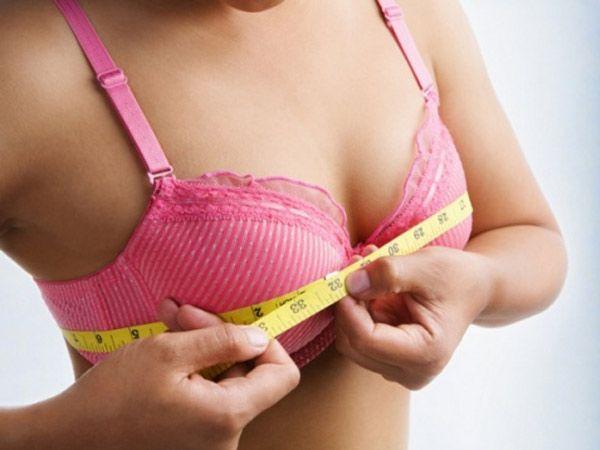Breast pain and soreness is common and it doesn’t always indicate cancer. It’s a sign of some problem that you’ve been ignoring and these could be anything from hormonal changes during your period, lumpy breasts or an ill-fitted bra. Here’s what you need to check for and take the right action.
1. You are PMSing:
The most common cause of breast pain is hormonal changes during PMS, which is an indication that Aunt Flo is coming to visit. If it’s too painful, opt for OTC (over-the-counter) drugs for immediate relief. You also need to watch out for other symptoms like swelling and tenderness. But, the good news is that the pain goes away as soon as your period ends.
2. You need a new bra:
If your bra is too tight or too loose, or if the cups are too small, the underwire may bite into your body leading to breast tenderness and pain. So, the next time you go lingerie shopping, make sure you get yourself a well-fitted bra.
3. You’ve increased the intensity of your workout:
An intensive workout of push-ups or weight lifting can have serious effects on your pectoral muscles, which are located right under your breasts. This can cause breast pain and soreness, which you can get rid of by applying heat or popping a pain reliever.
4. You pulled a muscle:
If you have been lifting heavy bags or moving furniture, chances are you have strained your pectoral muscles. Try a heat pad or pain-relief medication (bought from a regular chemist) to get rid of the pain.

5. You are not wearing the right bra while exercising:
Most women don’t understand the importance of wearing a sports bra while working out. Your breasts need the right kind of support to keep them from bouncing and harming the breast tissue. Invest in a good quality, well-fitted sports bra for maximum support.
6. Lumpy breasts:
Some women report lumpy breast tissue, which is also known as fibrocystic breast tissue, which causes further breast tenderness. This may not be directly linked to breast cancer, but it is a fluid-filled cyst in the breast that makes the breasts sensitive to hormonal changes. Make sure you do a mammary test at home on a regular basis and check for any changes. It’s most recommended to consult a physician.
7. You are pregnant:
The hormone progesterone doubles up production during early pregnancy, which causes breast soreness. But you should know that there’s a difference when your breasts hurt during pregnancy (which is accompanied by nausea) and when they become sore during your period. If you notice anything out of the ordinary, consult your doctor.




